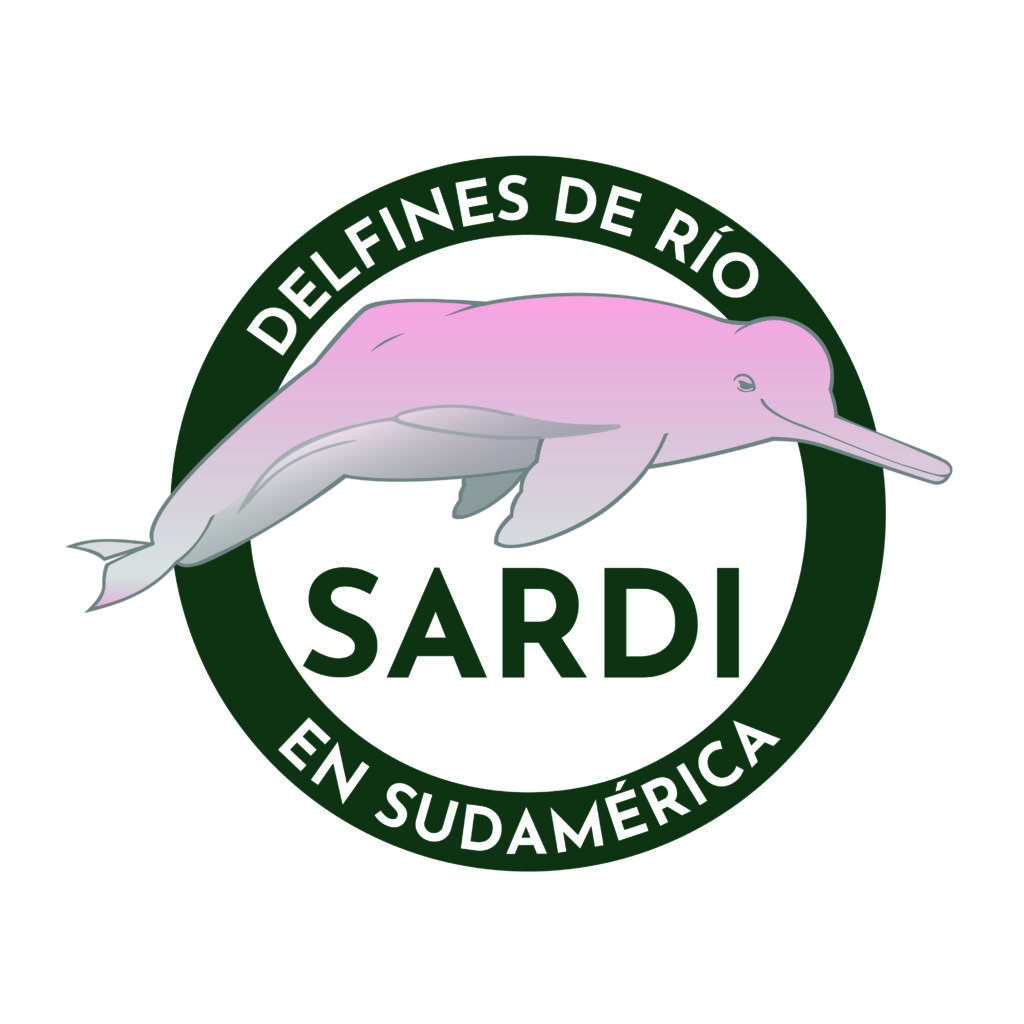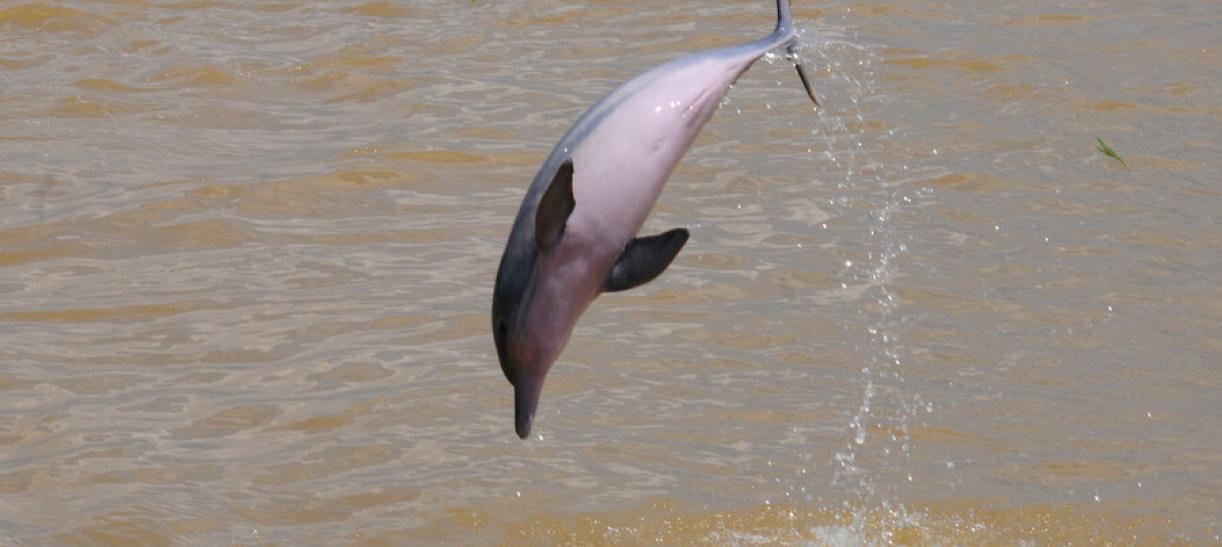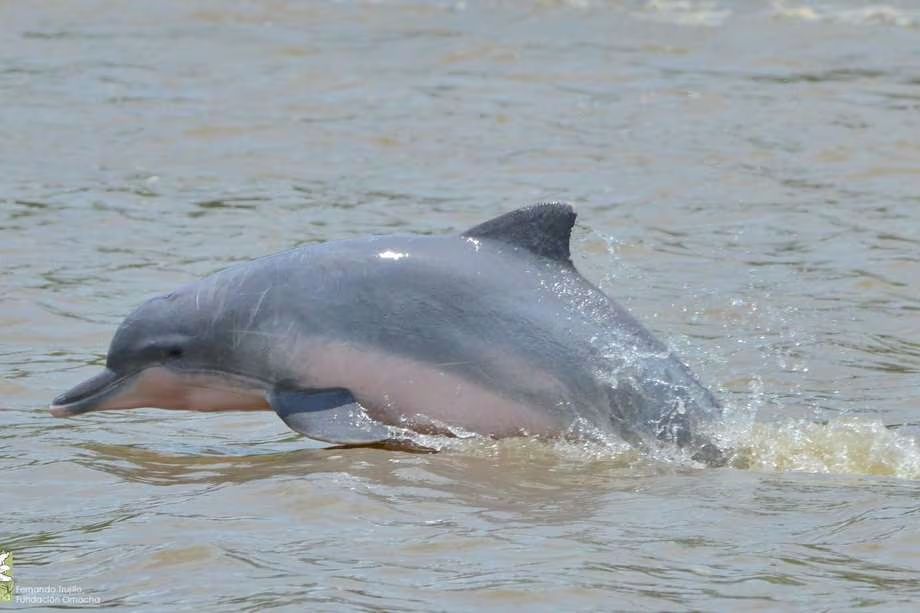With Colombia as host country, 11 nations of the world signed the Global Declaration on River Dolphins. We tell you what the commitments are and what their importance is.
Together with 10 other countries from South America and Asia, Colombia signed the Global Declaration on River Dolphins, a historic agreement that seeks to unite efforts in favor of the protection and conservation of these aquatic mammals and their habitats.
The signing took place in Bogotá on Tuesday, October 24, and, according to the Ministry of the Environment, with this commitment it is expected to “unite efforts to stop and reverse the decline of all river dolphin populations in their range, implement measures to manage, conserve, protect and restore the habitats of the species and mobilize resources for the implementation of effective action plans.”
The declaration was agreed upon in the framework of the celebration of World River Dolphin Day and, the Environment Ministry adds, “this new effort represents the regional coordination of the country in different conservation processes of this species that (in Colombia) lives in the Orinoco and Amazon basins.”
This commitment was reached just days after the death of more than 150 river dolphins was reported in Lake Tefé, in Brazil, an ecosystem devastated by drought in the Amazon.
This is recalled by the World Wildlife Fund (WWF), an international NGO that celebrated the agreement, while recalling that the world has been experiencing “decades of an apparently irreversible decline in the number of river dolphins on a global scale,” to the point that today there is a struggle to save only six surviving species from extinction.
“Since 1980, river dolphin populations have plummeted by 73% due to multiple threats, including unsustainable fishing practices, hydroelectric dams, pollution from agriculture, industry and mining, as well as habitat loss,” WWF said.
Which countries signed the Global Declaration on River Dolphins?
This international agreement was adopted by Asian and South American states in the range of these species, from Colombia (as host nation) to India. This means that these are the countries that commit to the aforementioned declaration to protect river dolphins:
Colombia.
Venezuela.
Peru.
Pakistan.
India.
Nepal.
Ecuador.
Brazil.
Cambodia.
Bolivia.
Bangladesh.
According to the Colombian Ministry of Environment, these nations joined together to generate consensus in favor of river dolphins that are on the Red List of Threatened Species of the International Union for Conservation of Nature.
“It is the first time in history that countries have come together around this mechanism and we, at the American level, have been leading it in line with the National Development Plan with which we want to protect our threatened species,” said Adriana Rivera, director of Forests, Biodiversity and Ecosystem Services at the Ministry of the Environment.
Declaration to protect river dolphins: what is it and what are the commitments?
The Global Declaration for River Dolphins aims to stop the decline of all these species and increase the sizes of the most vulnerable populations.
This is what WWF says, highlighting that among the commitments of the agreement is to “intensify collective efforts to safeguard the remaining species of river dolphins by developing and financing measures to eradicate gillnets, reduce pollution, expand research and increase protected areas.”
But this commitment goes beyond saving river dolphins. For Stuart Orr, WWF’s Global Freshwater Leader, this declaration is also expected to “improve the health of large rivers, the lifeblood of so many communities and economies, as well as sustain critical ecosystems, from tropical forests to deltas.”
WWF’s Regional Director for Latin America and the Caribbean, Roberto Troya, said that the signatory Amazonian countries “commit to working to reverse the danger to which river dolphins are found, key to maintaining the health of these ecosystems for the well-being of nature and the populations that depend on it.”
According to the Ministry of Environment, among the agreed commitments are the strengthening of legislation, institutions and the application of the law on water quality in Colombia.
Fernando Trujillo, director of the Omacha Foundation and an expert on the subject, stated that, based on the aforementioned global declaration, “agenda will be sought in each government, which has national plans for the conservation of river dolphins, and sites will be aligned Ramsar and we will see how we can make some pilots to recover the health of the rivers.





